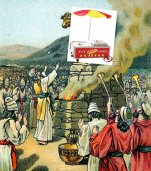Rob L
Aluminum
- Joined
- Nov 5, 2019
- Location
- Staffordshire, UK
That sounds like it was all going fine until one guy came along and started on a whole "back in the shop I used to work at we had this and it did that and it was so much faster and it was shiny", I've seen similar things before although not in a machine shop, some people really can't stand a downgrade and they like to make it known. Thing is, in my case those people came from businesses that ran out of money and the same thing in your case, so that equipment alone didn't save them and they can't imagine a world where people turn a profit with older or cheaper equipment.It just feels like everyone has no trust in any machine since a hire from a now bankrupt shop with the best of the best new machines showed up. all the machines hold tolerance and do the job asked of them albeit a bit slow or I would have sent them on their way .
I'd also like to know how old the machines are, even CNC machines have a pretty long lifespan as long as they remain supported, my oldest CNC lathe has iron going back around 40 - 45 years and was retrofitted 25 years ago, it has quirks but it makes parts and it does them well, but I could certainly imagine if someone from a shop running a 5 year old Okuma came to run it they'd be annoyed constantly.
Without knowing much I think the above posts about single out the worst machine and replace that first are pretty fair, if you have a 30 year old CNC lathe that's tempermental but does make parts look at replacing it with something that is 15 years old and has known support, buying new isn't the be all and end all and clearly buying used doesn't put you off.


